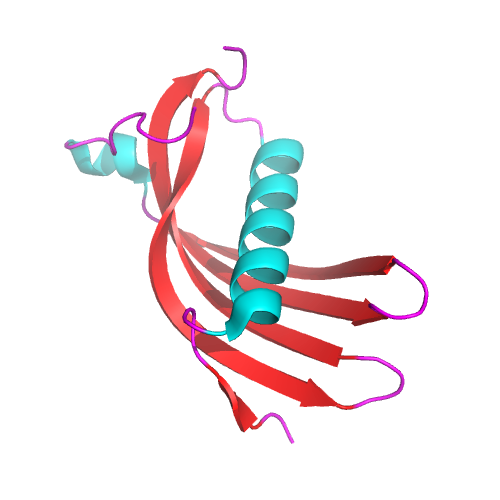Hereditary cystatin C amyloid angiopathy

Editor-In-Chief: Prab R Tumpati, MD
Obesity, Sleep & Internal medicine
Founder, WikiMD Wellnesspedia &
W8MD medical weight loss NYC and sleep center NYC
| Hereditary cystatin C amyloid angiopathy | |
|---|---|

| |
| Synonyms | HCCAA, Icelandic type hereditary cerebral amyloid angiopathy |
| Pronounce | N/A |
| Specialty | Neurology, Genetics |
| Symptoms | Stroke, dementia, seizures |
| Complications | N/A |
| Onset | Typically in adulthood |
| Duration | Progressive |
| Types | N/A |
| Causes | Mutation in the CST3 gene |
| Risks | Family history |
| Diagnosis | Genetic testing, imaging studies |
| Differential diagnosis | N/A |
| Prevention | N/A |
| Treatment | Supportive care, antihypertensive therapy |
| Medication | N/A |
| Prognosis | Poor, with progressive neurological decline |
| Frequency | Rare, more common in Iceland |
| Deaths | N/A |
Hereditary cystatin C amyloid angiopathy (HCCAA) is a rare genetic disorder characterized by the deposition of amyloid in the cerebral blood vessels. This condition is primarily associated with mutations in the CST3 gene, which encodes the protein cystatin C.
Pathophysiology[edit]
Cystatin C is a cysteine protease inhibitor that plays a crucial role in regulating proteolytic activity in the body. In HCCAA, a specific mutation in the CST3 gene leads to the production of an abnormal form of cystatin C. This mutant protein is prone to misfolding and aggregation, resulting in the formation of amyloid deposits in the walls of cerebral blood vessels. These deposits can lead to cerebral amyloid angiopathy, which increases the risk of intracerebral hemorrhage.
Clinical Presentation[edit]
Patients with HCCAA typically present with recurrent cerebral hemorrhages, often beginning in early adulthood. The condition is characterized by a progressive decline in neurological function, which may include stroke, dementia, and other cognitive impairments. The recurrent hemorrhages are often fatal, and the average life expectancy is significantly reduced.
Diagnosis[edit]
The diagnosis of HCCAA is based on clinical presentation, family history, and genetic testing. Imaging studies such as MRI and CT scan can reveal cerebral hemorrhages and other changes consistent with amyloid angiopathy. Genetic testing can confirm the presence of the CST3 gene mutation.
Treatment[edit]
Currently, there is no cure for HCCAA. Treatment is primarily supportive and focuses on managing symptoms and preventing complications. This may include the use of antihypertensive drugs to control blood pressure and reduce the risk of hemorrhage. Genetic counseling is recommended for affected families.
Prognosis[edit]
The prognosis for individuals with HCCAA is generally poor due to the high risk of recurrent cerebral hemorrhages. The condition often leads to severe neurological impairment and early death. Research is ongoing to better understand the disease mechanism and develop potential therapies.
See also[edit]
Ad. Transform your life with W8MD's Budget GLP-1 injections from $75


W8MD offers a medical weight loss program to lose weight in Philadelphia. Our physician-supervised medical weight loss provides:
- Weight loss injections in NYC (generic and brand names):
- Zepbound / Mounjaro, Wegovy / Ozempic, Saxenda
- Most insurances accepted or discounted self-pay rates. We will obtain insurance prior authorizations if needed.
- Generic GLP1 weight loss injections from $75 for the starting dose.
- Also offer prescription weight loss medications including Phentermine, Qsymia, Diethylpropion, Contrave etc.
NYC weight loss doctor appointmentsNYC weight loss doctor appointments
Start your NYC weight loss journey today at our NYC medical weight loss and Philadelphia medical weight loss clinics.
- Call 718-946-5500 to lose weight in NYC or for medical weight loss in Philadelphia 215-676-2334.
- Tags:NYC medical weight loss, Philadelphia lose weight Zepbound NYC, Budget GLP1 weight loss injections, Wegovy Philadelphia, Wegovy NYC, Philadelphia medical weight loss, Brookly weight loss and Wegovy NYC
|
WikiMD's Wellness Encyclopedia |
| Let Food Be Thy Medicine Medicine Thy Food - Hippocrates |
Medical Disclaimer: WikiMD is not a substitute for professional medical advice. The information on WikiMD is provided as an information resource only, may be incorrect, outdated or misleading, and is not to be used or relied on for any diagnostic or treatment purposes. Please consult your health care provider before making any healthcare decisions or for guidance about a specific medical condition. WikiMD expressly disclaims responsibility, and shall have no liability, for any damages, loss, injury, or liability whatsoever suffered as a result of your reliance on the information contained in this site. By visiting this site you agree to the foregoing terms and conditions, which may from time to time be changed or supplemented by WikiMD. If you do not agree to the foregoing terms and conditions, you should not enter or use this site. See full disclaimer.
Credits:Most images are courtesy of Wikimedia commons, and templates, categories Wikipedia, licensed under CC BY SA or similar.
Translate this page: - East Asian
中文,
日本,
한국어,
South Asian
हिन्दी,
தமிழ்,
తెలుగు,
Urdu,
ಕನ್ನಡ,
Southeast Asian
Indonesian,
Vietnamese,
Thai,
မြန်မာဘာသာ,
বাংলা
European
español,
Deutsch,
français,
Greek,
português do Brasil,
polski,
română,
русский,
Nederlands,
norsk,
svenska,
suomi,
Italian
Middle Eastern & African
عربى,
Turkish,
Persian,
Hebrew,
Afrikaans,
isiZulu,
Kiswahili,
Other
Bulgarian,
Hungarian,
Czech,
Swedish,
മലയാളം,
मराठी,
ਪੰਜਾਬੀ,
ગુજરાતી,
Portuguese,
Ukrainian